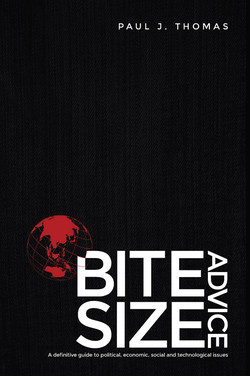Читать книгу Bite Size Advice - Paul J. Thomas - Страница 9
На сайте Литреса книга снята с продажи.
ОглавлениеIntroduction
Never in my wildest dreams did I think my blog posts would one day be turned into a book. When I took my first uncertain steps as a rookie blogger in March 2008, I thought I would quickly run out of steam. Seven years later, I can safely say that my concern was unfounded.
I took to blogging like a duck to water and have never missed a weekly posting, even though I still lose sleep worrying about the content of next week’s blog! I find blogging extremely rewarding since it enables me to show a more human side to banking and finance.
From the outset, I have used my blog to offer what I hope have been enlightening insights into the often misunderstood world of banking and finance. I have tried to shine an instructive light on the inner workings of a sector that touches the daily lives and wallets of billions of people around the world.
Whether it’s taking out a mortgage to buy a home, obtaining capital to start a business, transferring money to electronically pay bills, putting savings away to fund one’s retirement or insuring your life and personal possessions, the financial services industry plays a key role.
Indeed, the financial services industry is the hub of an economy, facilitating the productive flow of funds between sectors, companies and individuals. The banking industry plays a critical role in fuelling economic growth by providing credit to households, businesses and governments.
Money, of course, is a central component of our lives and influences practically every decision that we make. We need money to pay for our basic needs (food, clothing and shelter) and to finance our non-essential wants (exotic holidays, luxury cars and designer goods).
Some people are defined by money, others see money as merely a means to an end while others still have very little money. This economic inequality has driven me to opine on the extremes of wealth and poverty, highlighting the gap between the richest and poorest in society.
Humans love to debate and argue their point. Some of the high profile debates that I have weighed into include the population debate, the climate debate, the welfare debate and the privatisation debate. On a lighter note, I also debated the merits of maintaining a corporate wardrobe.
Maintaining a corporate blog has clearly enabled me to share my ideas and opinions on a range of political, economic, social and technological topics. What I have learned along the way is that you have to distil a lot of information into a coherent and cohesive argument or summary.
If the truth be known, I was initially a very reluctant blogger and was dragged into blogging by a colleague who argued that it would be good for Gateway and for me. I now find it hard to imagine my professional life without blogging – it’s become part and parcel of my working week.
The golden rule of blogging is that you have to be authentic, so my blog is an online extension of my personality. My overarching aim is to be an honest and transparent blogger who tries to inform and debate in an entertaining way.
In March 2013, I celebrated my fifth anniversary as a blogger which caused me to look at the blog with fresh eyes. What struck me is that my blog, unlike most others, did not have a name. Choosing a personal blog title is something I overlooked when my blog was launched.
I was told that the best blog titles are short, compelling and easy to find in search results. So, I chose to name my blog, Doubting Thomas. The term Doubting Thomas can be viewed in a negative or positive light depending on whether you are a destructive cynic or a constructive sceptic and I am the latter.
Cynicism is a mind-set of automatic doubt whereas scepticism employs critical thinking to determine validity. The word sceptic is from the Greek word skeptikos which means to inquire or find out. It is said that scepticism (factual analysis) is the best way of seeking the truth.
The French mathematician, scientist and philosopher, René Descartes (1596-1650), insisted on thinking for himself rather than simply accepting what he had been taught. He resolved to hold nothing true until he could be absolutely certain of it.
Descartes eventually discovered that the one thing he could never doubt was the fact that he himself existed, since the very act of doubting required a doubter. He expressed this conclusion in the now famous Latin phrase “Cogito, ergo sum” – I think, therefore I am. To paraphrase Descartes – I think, therefore I blog.
Finally, please note that each blog post was originally written to be read independently of the rest. Given this fact, some repetition and overlap occurs when stand-alone posts covering the same topic – albeit from different angles – are reproduced together in this one book.
